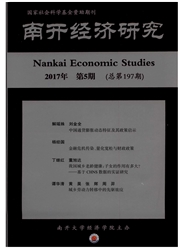

 中文摘要:
中文摘要:
本文的主要的目是从事后的角度分析流通股股东的股票财富在股权分置改革前后的变化。股权分置改革方案的提出和表决是流通股股东和非流通股股东之间的一个讨价还价过程,利益分配取决于双方的谈判力量。统计结果显示,从总体上看,流通股股东的财富在股改前后获得了7%的增值。非流通股比例、股改批次、控股股东性质、市净率是影响流通股股东获得财富增值的主要因素。虽然非流通股比例越大,非流通股股东支付的对价股票也越多,但是,流通股股东享受的财富增值却越低。非流通股比例与对价水平之间正的相关性掩盖了非流通股股东少付对价的事实。总的来说,对价方案是在维持流通股股东股改前后的财富不受损的基础上制定的,而不是补偿流通股股东历史上对上市公司的投入。
 英文摘要:
英文摘要:
It is analyzed whether floating shareholders enjoy wealth premium in the process of equity separation reform in China. Equity separation reform is a bargaining process between nonfloating shareholders and floating shareholders. The allocation of benefits depends on bargaining power of both sides. Empirical evidence shows that floating shareholders enjoy some premium. The ownership percentage of non-floating shareholders and institutional shareholders, the sequence of equity separation reform, the type of controlling shareholders, time from IPO up to the present, EPS are the factors influencing the degree of premium. The higher the percentage of non-floating shareholding, the lower the premium floating shareholding can enjoy.
 同期刊论文项目
同期刊论文项目
 同项目期刊论文
同项目期刊论文
 Building Core Competencies in a Turbulent Environment: An Exploratory Study of Firm Resources and Ca
Building Core Competencies in a Turbulent Environment: An Exploratory Study of Firm Resources and Ca Oversea Listing, Voluntary Governance and Corporate Performance--A Case Study Based on the ‘Sinopec’
Oversea Listing, Voluntary Governance and Corporate Performance--A Case Study Based on the ‘Sinopec’ A study of fairness judgments in China, Switzerland and Canada: Do culture, being a student, and gen
A study of fairness judgments in China, Switzerland and Canada: Do culture, being a student, and gen 期刊信息
期刊信息
